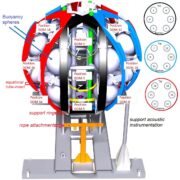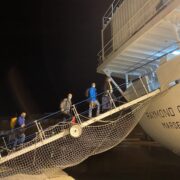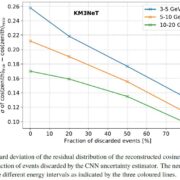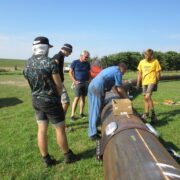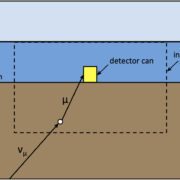KM3NeT@neutrino2022
Fifty years ago, in 1972, the first neutrino conference was held in Hungary, because the organisers were not satisfied with the subdued position of neutrino interactions at the international conferences at that time. Nowadays, the neutrino conference is one of the major conferences in neutrino (astro)particle physics. Neutrino2022 took place in virtual Seoul, 30 May-4 June, 2022 and of course KM3NeT was there to show the results of data taking with the first detection units of ARCA and ORCA.

